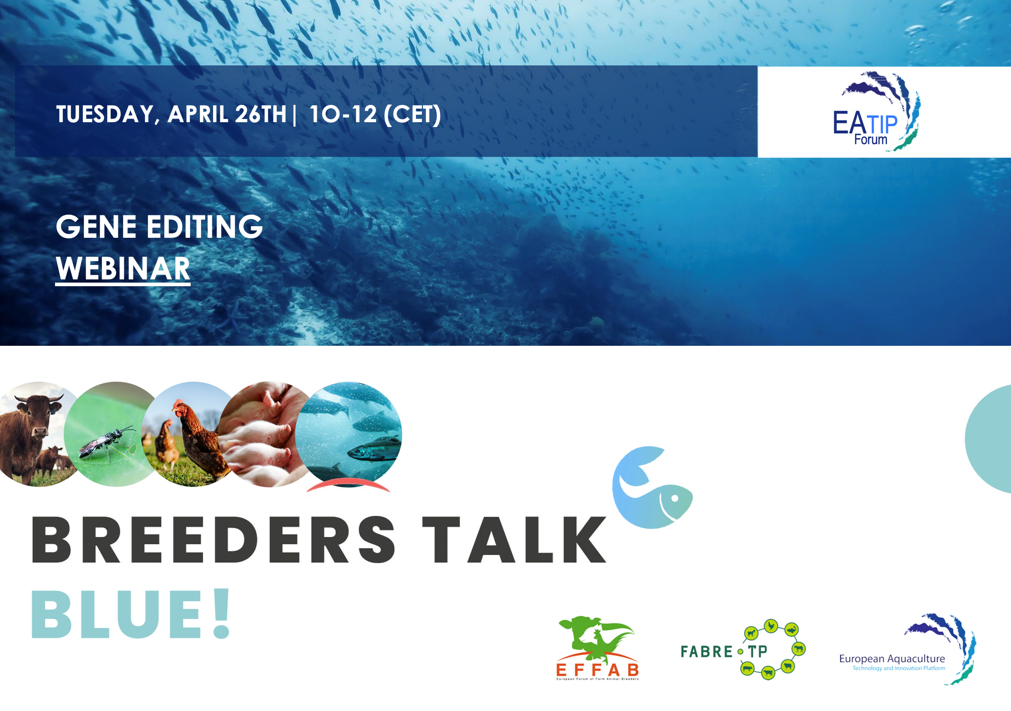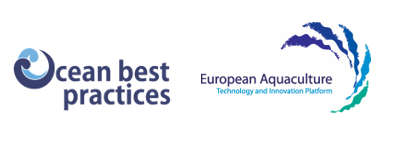
The webinar recordings and report are now available.
CRISPR-Cas9 is a specific gene editing methodology that allows genetic material to be altered at particular locations of the genome. This technology is fast, cheap, accurate and efficient, and provides a potential supplement to traditional breeding methods. Genome editing gained interest by the aquaculture community as it can contribute to increasing the sustainability of the sector through the production of more robust and/or sterile fish. So what exactly are the opportunities gene editing creates for aquaculture, are there any ethical concerns, and is the legislation on the verge of being more liberal when it comes to using this technique in the cultivation of food from the oceans?
EATiP Forum / Breeders Talk Blue event, was jointly organized EATiP and EFFAB-FABRE TP, on the potential and opportunities of Gene Editing in Aquaculture.
Various presentations from the European Commission, different scientists from renowned Institutes and private sector experts exchanged and discussed around the following topics:
- The use of gene editing technique (like CRISPRR-Cas9) to improve the breeders toolbox linked to specific applications, such as sterility, disease resistance..
- The link to exploring opportunities to adapt legislation
- Search for evidence and research gaps that help understand the safety of the technique
- Exploring the expectations of the sector and stakeholders, including concerns related to Animal Welfare
Find the report here
Watch the video
26 APRIL 2022
Agenda (10:00 – 12:00)
Welcoming address:
- David Bassett | EATiP and Ana Granados | EFFAB / FABRE TP
Opening talks
- Gene editing in Europe – a policy status, by Frank Swartenbroux | EC DG SANTE Biotechnology unit
- Gene editing – what is it about?, by Diego Robledo | Roslin Institute
Presentations
- Targeting sterility in fish, by Anna Wargelius | Institute of Marine Research
- Disease resistance, by Ross Houston | Benchmark Genetics
- Salmon lice resistance, by Tone-Kari Knutsdatter Østbye | Nofima
- Gene editing approaches, by Alan Tinch | Center for Aquaculture Technologies
Mentimeter results
Webinar conclusions





